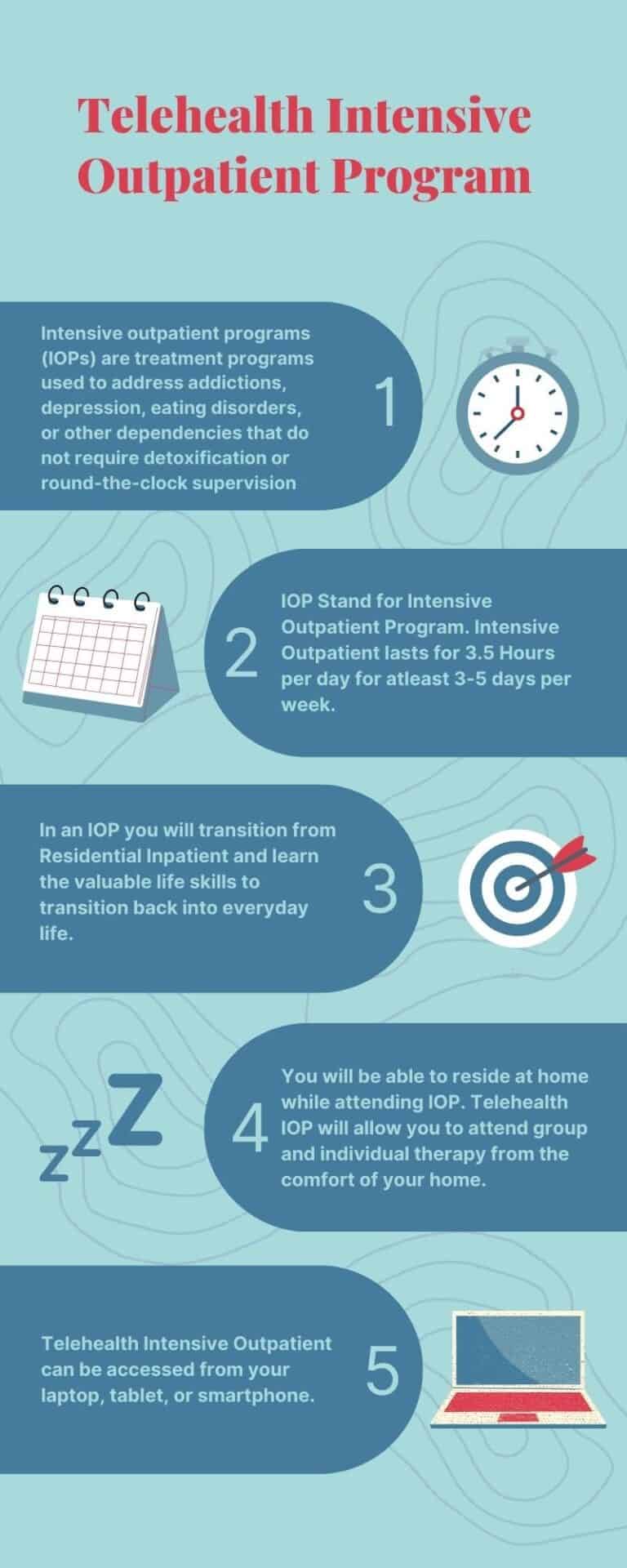Proven Success with Intensive Outpatient Program (IOP) for Chemical Abuse Recovery.
Proven Success with Intensive Outpatient Program (IOP) for Chemical Abuse Recovery.
Blog Article
The Influence of Holistic Therapies on Mind-Body Healing in an Intensive Outpatient Program
In the realm of extensive outpatient programs, the unification of holistic treatments has actually triggered considerable rate of interest and dispute amongst experts in the area of mental health and health. The possible synergy in between traditional restorative modalities and all natural techniques in promoting all natural well-being remains a subject ripe for exploration and evaluation.
Integrating Holistic Therapies in IOP
Including all natural treatments into Intensive Outpatient Programs (IOP) can improve the general health and treatment results of individuals seeking psychological health and wellness assistance. Holistic therapies concentrate on treating the entire person, dealing with not only the signs but additionally the underlying root causes of psychological health and wellness issues. By incorporating methods such as yoga exercise, reflection, art therapy, and acupuncture right into IOP settings, people can experience an extra comprehensive approach to their therapy.

Advantages of Yoga and Meditation
By instilling IOP settings with alternative therapies like yoga exercise and meditation, individuals can access a series of advantages that add to their mental and emotional health. Yoga, with its emphasis on physical positions, breathing techniques, and mindfulness, can aid people minimize tension, stress and anxiety, and depression. The method of yoga promotes leisure and improves general mood by launching endorphins, the body's natural feel-good chemicals. In addition, yoga improves self-awareness and promotes a sense of internal tranquility, which can be especially helpful for individuals undergoing extensive outpatient therapy.

Acupuncture for Mind-Body Recovery
Acupuncture, a standard Chinese medicine practice including the insertion of thin needles into details points on the body, offers an unique technique to mind-body recovery by targeting power flow and advertising alternative health. This ancient method is based upon the concept of Qi, the body's crucial energy, flowing along meridians or paths. By boosting specific acupoints, acupuncturists intend to recover the balance of Qi, which is thought to be necessary for general wellness and health.
In the context of mind-body recovery, acupuncture has revealed promising lead to decreasing anxiety, anxiousness, and anxiety by regulating the body's physical reaction to these problems. Study recommends that acupuncture can assist their website launch endorphins, the body's natural pain relievers, and regulate natural chemicals to improve state of mind and emotional wellness. In addition, acupuncture sessions are typically accompanied by a sense of leisure and tranquility, which can contribute to an extra balanced frame of mind.
In addition, acupuncture is progressively being incorporated right into Western medicine techniques to match conventional therapies for numerous psychological health and wellness problems, supplying a holistic method that considers the interconnectedness of the mind and body in promoting healing and wellness. Intensive Outpatient Program (IOP).
Mindfulness Techniques in Therapy
Broadening on the world of all natural therapies, mindfulness techniques play a critical role in treatment by fostering a much deeper link in between the body and mind for total wellness. Mindfulness, rooted in old contemplative methods, involves focusing on the present minute non-judgmentally. In the context of an extensive outpatient program, integrating mindfulness methods can help individuals develop self-awareness, regulate feelings, and reduce stress and anxiety levels. With mindfulness meditation, individuals can cultivate an increased feeling of understanding of their ideas, sensations, and bodily experiences, advertising a higher understanding of the interconnectedness in between physical and psychological wellness.
Mindfulness techniques can additionally assist in breaking the cycle of adverse idea patterns and habits that may add to mental health and wellness challenges. By encouraging people to observe their ideas without attachment or judgment, mindfulness promotes a feeling of acceptance and concern in the direction of oneself (Intensive Outpatient Program (IOP)). This method can lead to improved emotional resilience, improved coping devices, and a higher sense of internal peace. Eventually, incorporating mindfulness methods into treatment plans can equip people to proactively take part in their recovery trip and advertise alternative health.

Reviewing All Natural Interventions' Efficiency

Qualitative assessments, on the other hand, include gathering subjective comments from individuals concerning their experiences with alternative treatments. This qualitative information can use useful insights right into the regarded advantages of these treatments on people' general wellness, lifestyle, and coping systems. By integrating quantitative information with qualitative feedback, scientists can obtain an extra alternative understanding of the effectiveness of these interventions in promoting mind-body recovery within an extensive outpatient program. Such analyses are necessary for notifying evidence-based practices and maximizing holistic treatment strategies for individuals seeking comprehensive health.
Conclusion
Finally, the assimilation of all natural treatments such as yoga, meditation, acupuncture, and mindfulness strategies in an extensive outpatient program can have a significant influence on mind-body recovery. These therapies provide a more detailed strategy to therapy by attending to the physical, psychological, and spiritual look at here facets of an individual's well-being - Intensive Outpatient Program (IOP). Examining the effectiveness of these all natural interventions is crucial in comprehending their prospective advantages in boosting the overall recovery process for individuals in an outpatient setting
Report this page